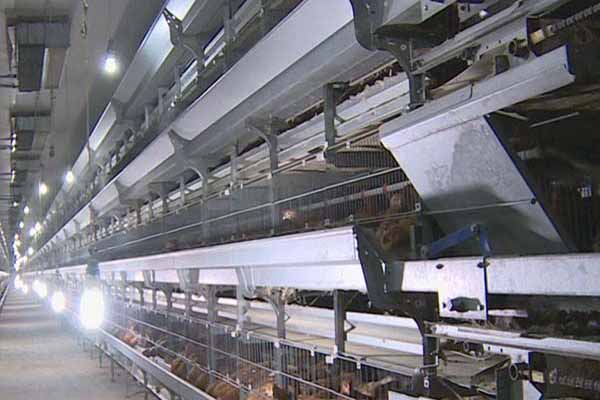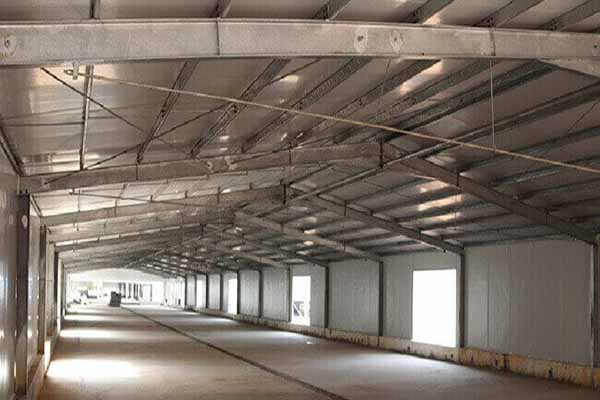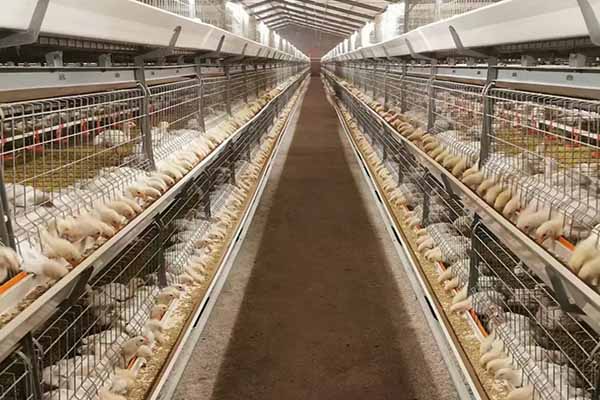How to Extend the Service Life of Tanzanian Chicken Farming Equipment: Expert Tips from Livi Machinery
Time : 2025-07-26
As a leading poultry equipment manufacturer from China, Livi Machinery understands the importance of maintaining the longevity of your chicken farming equipment in Tanzania. Whether you’re a small-scale farmer or a large-scale poultry producer, keeping your equipment in top condition is crucial for efficient and cost-effective farming. In this article, we’ll share some expert tips on how to extend the service life of your Tanzanian chicken farming equipment.
Regular Maintenance
The key to extending the service life of any equipment is regular maintenance. Here are some essential maintenance tasks you should perform:
1. Cleaning and Sanitizing
Regular cleaning and sanitizing of your chicken farming equipment are not only crucial for the health of your birds but also for the longevity of the equipment. Use appropriate cleaning agents and follow the manufacturer’s guidelines to ensure thorough cleaning.
Use a brush or a high-pressure cleaner to remove any debris or buildup. Pay special attention to areas where food particles or droppings can accumulate. After cleaning, sanitize the equipment with a solution of water and bleach or a commercial sanitizer to kill any bacteria or pathogens.
2. Lubrication
Lubricating moving parts is essential to reduce friction and prevent wear. Use the correct type of lubricant recommended by the equipment manufacturer. Regularly check and top up lubricants to ensure smooth operation.
Check the equipment for any signs of wear or tightness in the moving parts. Apply lubricant to these areas as needed. Remember to clean the lubrication points before applying the lubricant to remove any dirt or debris.

Proper Storage
Proper storage is just as important as regular maintenance. Here’s how to store your chicken farming equipment effectively:
1. Dry Storage
Keep your equipment in a dry, cool place. Moisture can lead to rust and corrosion, significantly reducing the lifespan of the equipment.
Ensure that the storage area is well-ventilated to prevent condensation. If possible, store the equipment indoors or cover it with a waterproof tarp to protect it from the elements.
2. Secure Storage
Securely store heavy equipment to prevent accidental damage. Use racks or stands to keep the equipment off the ground, which can also help prevent moisture from reaching the base.
For larger pieces of equipment, consider using a forklift or crane for safe handling and storage. Use straps or chains to secure the equipment to prevent movement during transport or storage.
Training and Education
Educating your staff on how to properly use and maintain the equipment is crucial. Here are some training tips:
1. Operator Training
Ensure that all staff members who operate the equipment are properly trained. This includes understanding the equipment’s operation, safety features, and maintenance requirements.
Conduct regular training sessions to refresh operators’ knowledge and skills. Encourage them to report any issues with the equipment immediately to prevent potential damage.
2. Maintenance Training
Provide training sessions on basic maintenance tasks such as cleaning, lubrication, and troubleshooting. This empowers staff to take ownership of the equipment’s care and extend its service life.
Develop a maintenance schedule that includes regular checks and replacements of worn-out parts. Ensure that staff members are familiar with the schedule and know how to perform the necessary tasks.

Choosing the Right Equipment
Investing in high-quality chicken farming equipment can significantly extend its service life. Here are some factors to consider when choosing the right equipment:
1. Durability
Look for equipment made from high-quality materials that are resistant to wear and corrosion.
Opt for equipment with stainless steel or galvanized steel components, as these materials are known for their durability and resistance to rust.
2. Efficiency
Efficient equipment not only saves energy and resources but also reduces the risk of breakdowns due to overuse.
Select equipment that is designed for your specific fa rming needs. This ensures that the equipment operates at optimal capacity and reduces the strain on its components.
rming needs. This ensures that the equipment operates at optimal capacity and reduces the strain on its components.
Conclusion
Extending the service life of your Tanzanian chicken farming equipment is a smart investment for any poultry farmer. By following these expert tips from Livi Machinery, you can ensure that your equipment remains in top condition for years to come. Remember, regular maintenance, proper storage, staff training, and choosing the right equipment are key factors in maintaining the longevity of your poultry farming equipment.











